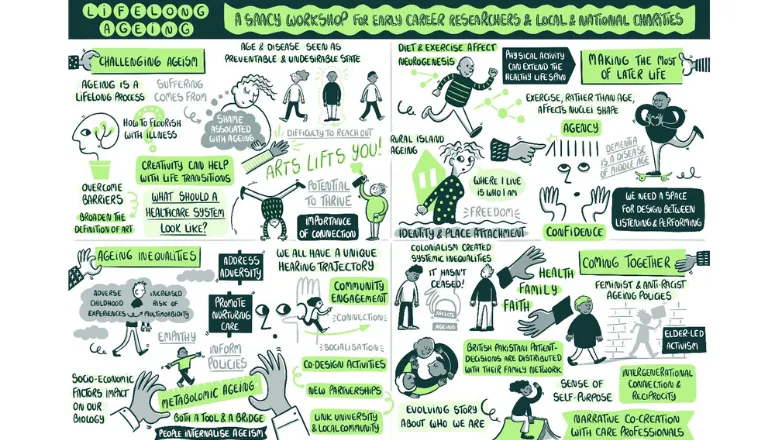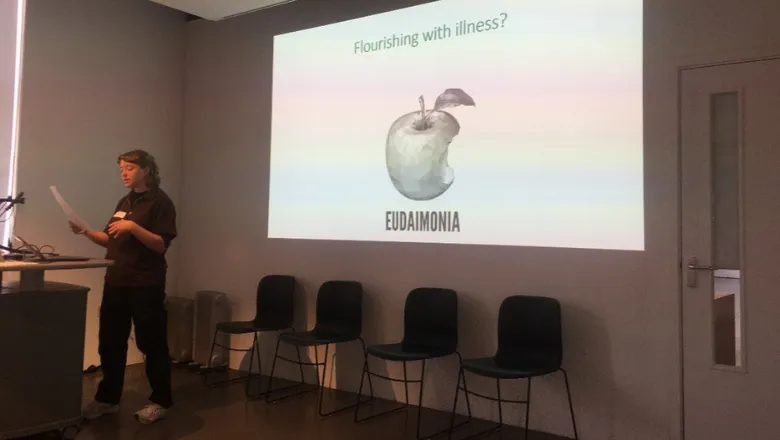There was a really great buzz in the room on the day and conversations allowed professionals working at national and local levels in the community to question and inspire the academics in the room. The mood was neatly captured by Camille Aubry’s live illustration of the day’s conversation (pictured at the top of this post). As part of SAACY’s work, we want to continue starting better conversations like this, which need to take place if we are going to tackle important issues like ageing.
Dr Martina Zimmermann, UKRI Future Leaders Fellow and Lecturer in Health Humanities and Health Sciences
18 July 2023
Cross-sector workshop explores the lifelong process of ageing
Researchers at King’s organise a discipline- and sector-crossing workshop around the idea of lifelong ageing.

Ageing is often associated with older people and with ideas of disease and decline. However, at a biological level, ageing begins at birth – ‘growing up’ is part of the same process as ‘growing old’.
As our population grows older and amid a social care crisis, what might research, care and community look like if we understood ageing as a lifelong process that unites rather than divides us?
The Lifelong Ageing workshop, organised by the Sciences of Ageing and the Culture of Youth research programme and funded by UK Research and Innovation and the Arts and Humanities Research Council, aimed to answer this question and explore topics around it.
Researchers from across the UK came together for the workshop on 17 May 2023 at Science Gallery London to showcase their work to an audience of charity and third sector professionals, sharing their understanding of ageing and to get feedback from people working on the ground.

The workshop included a range of speakers from departments as diverse as Neuroscience, Anthropology, Music, Medicine and English, all working on projects that take a lifecourse perspective.
Discussions revolved around the questions: What does it mean to flourish as we age? How can technological, intersectional or intergenerational approaches help ageing research? And, most importantly, how can we make our research relevant to people’s everyday realities?

